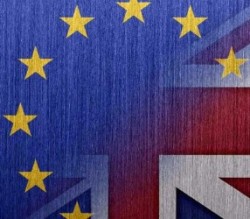The Implications of Brexit on UK iPoker Sites

In late June, the UK held a referendum to determine whether or not the nation should remain in the European Union. Analysts at the time believed that there was no chance of a British exit; however, 52 percent of those who subsequently voted were in favor of leaving the EU. While the margin of victory was narrow, the UK is now poised to exit the EU, and according to economic analysts the impact of Brexit will be great. With many people already speculating as to how the move will affect online poker in the United Kingdom, let us now take a look at what could happen area by area:
England
In England, there is unlikely to be much of a change to online poker after Brexit. Currently, online gambling falls under the jurisdiction of the UK Gambling Commission and is regulated under the 2005 Gambling Act and remote gambling laws that were passed in 2014. These laws are already different from many that are in place in the European Union, and they will continue to remain in effect even after the Brexit. The legality of international player pooling even makes it unlikely that there will be a drop in liquidity if the UK does breaks apart.
Scotland
Residents of Scotland voted to remain in the European Union. As a result, Scottish lawmakers are now considering a referendum that if successful would remove Scotland from the United Kingdom. If this were to happen, online poker would undoubtedly be affected, as there would be no laws in place to regulate iGaming. Scottish players may lose access to online poker, or find that liquidity decreases greatly at least in the short term until deals for player pooling could be reached with what’s left of the UK or other EU nations.
Northern Ireland
Northern Ireland is also reportedly considering an exit from the United Kingdom. If the country were to become independent, players there would encounter the same set of circumstances as those in Scotland; however, there are talks that the reunification of Ireland may be a potential consequence of Brexit. Should this happen, Northern Ireland would be subject to the online gambling laws of Ireland, which are rather liberal.
Gibraltar
Home to many online poker operators, Gibraltar is a territory of the UK that regulates gambling through its own Gibraltar Regulatory Authority. The territory has already expressed an interest in leaving the UK to remain part of the European Union, and there is also a chance that the territory might transfer hands and become a part of Spain. It’s unknown what the terms of any admittance to the EU, or status as a Spanish territory would have on operators based in Gibraltar. There is a chance that the Gibraltar Regulatory Authority may be allowed to continue regulating online poker as it is currently doing, or the territory may end up subject to EU gambling laws or the laws of Spain.
The Isle of Man
Home of PokerStars, the Isle of Man is another British territory. While there is no word yet on how the government of the territory wishes to proceed, industry insiders believe that officials will do whatever is necessary to keep Amaya’s poker site based on the island, as it is vital to the territory’s economy.
The EU Data Protection Rules
The European General Data Protection Regulation (GDPR) passed in April, 2016, with the guideline scheduled to go into effect in 2018. The legislation is designed to protect the personal data of Europeans conducting business over the Internet, but the required policy and technology changes needed to comply with the cumbersome law is expected to have a significant impact on the individual iGaming markets of EU countries.
Prior to approval, the UK had long argued in favor of a lighter approach to digital economy regulation, but countries such as France and Germany ultimately overruled it. In the meantime, whilst the EU’s digital economy currently remains stagnant, the UK has a vibrant, thriving digital economy that is predicted to reach 12% of GDP by the end of 2016, compared to the roughly 4% levels current seen in France and Germany.
While the UK will still need to introduce adequate measures to stop it falling foul of EU laws if it is to continue dealing with the rest of the continent, it can now at least implement policies designed to innovate, and not limit, the industry. As Daniel Castro from theparliamentmagazine.eu explained in an article recently:
“If the purpose of Brexit was to allow the UK to reassert core British values through its policies, then it should seize this opportunity to define a uniquely British solution to data protection rather than continuing down the stultifying path laid out by Brussels. Doing so would not only free British companies from the heavy compliance cost of the GDPR and allow them to better compete in the global market, but it would also establish confidence with investors that the UK is in fact emerging hub for the growing data economy.”










